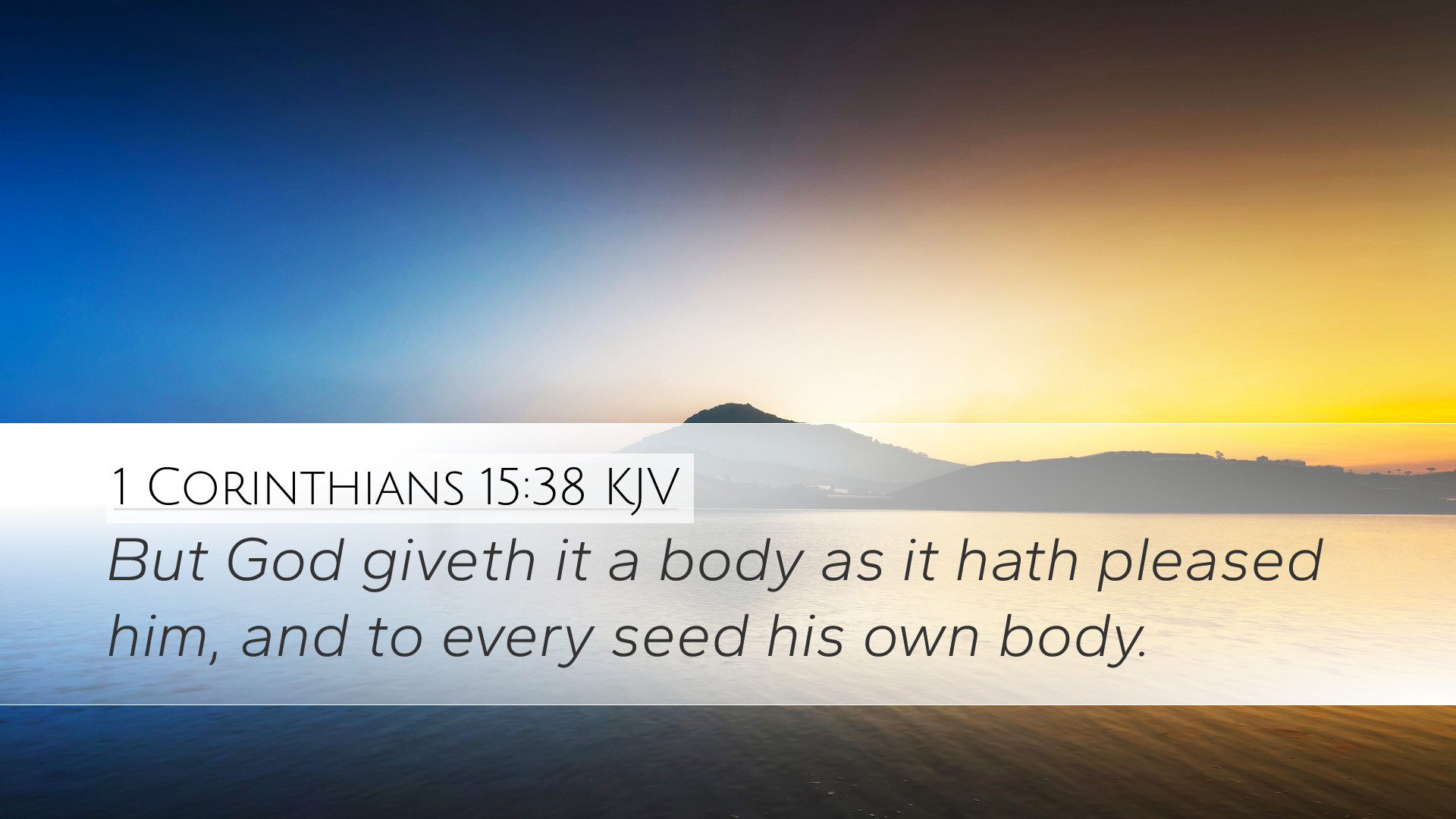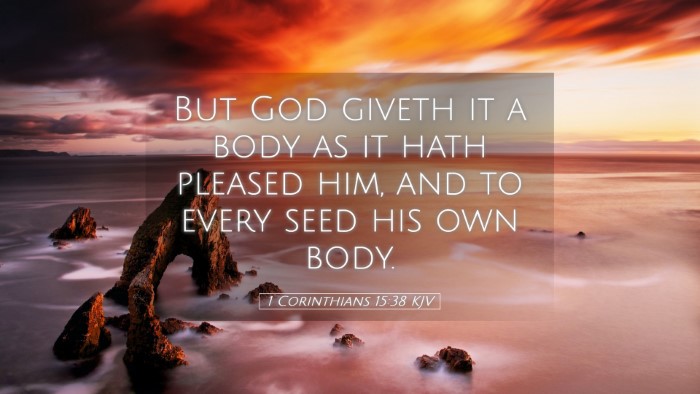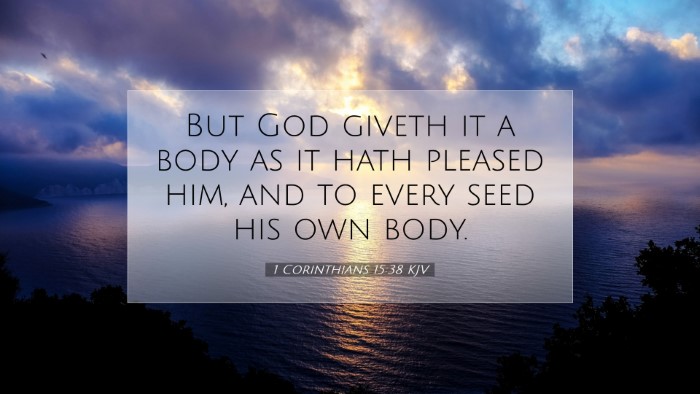Commentary on 1 Corinthians 15:38
Verse: "But God gives it a body as He pleases, and to each seed its own body." - 1 Corinthians 15:38 (NKJV)
Introduction
The Apostle Paul, in this chapter of 1 Corinthians, addresses the vital topic of resurrection, a cornerstone of Christian faith. Specifically, verse 38 sheds light on the intricate relationship between the physical body and the resurrection state, emphasizing divine sovereignty in creation and transformation.
Contextual Background
This passage falls within a broader discourse concerning resurrection (1 Corinthians 15). The Corinthian church was grappling with doubts concerning the resurrection of the dead, influenced by Greek philosophy that prioritized the spiritual over the physical. Paul, addressing these misconceptions, clarifies that God's creative authority extends to both life and resurrection, asserting the reality and necessity of the physical body in God’s plan.
Insights from Public Domain Commentaries
-
Matthew Henry:
Henry emphasizes that in resurrection, God is not limited by the natural order. Just as He gives each seed a specific body according to its kind, so too does He orchestrate the resurrection bodies according to His sovereign will. The comparison to seeds illustrates continuity and transformation, portraying that while the resurrected body is real and tangible, it's also distinct from our current physical state.
-
Albert Barnes:
Barnes expounds on the principle of “one body for one seed,” drawing a parallel that intertwines the physical and the spiritual. He notes the implications of God’s power in creating bodies suited for heavenly existence. This perspective insists on the belief that our resurrection bodies, like the transformed seeds, will be individually tailored by God’s wisdom and purpose.
-
Adam Clarke:
Clarke reflects on the metaphor of seeds, addressing both the continuity and transformation evident in resurrection. He points out that the body we shall have is determined by God’s design and glory. Clarke articulates that each person's resurrection is intentional, serving God's plan of salvation and divine purpose for humanity. He highlights that our resurrection does not erase our individuality but rather fulfills it in a way that glorifies God.
Theological Implications
The verse encapsulates significant theological concepts about identity and purpose in God’s creation. Here are key points:
- Divine Sovereignty: God’s authority in determining the nature of resurrection bodies underscores His sovereignty over creation. This refutes any anthropocentric view that diminishes God's role in the resurrection process.
- Continuity and Discontinuity: The analogy of the seed reveals continuity in our transformed bodies—such that they are connected to our earthly identity—while also indicating a transformation that surpasses earthly limitations.
- Individuality and Purpose: Each seed yields a unique plant, which signifies the uniqueness of each individual in resurrection, affirming the belief that God’s creation is purposeful and intentional.
Application for Believers
This verse invites believers to trust in God’s plan for resurrection, to recognize the continuity of their identity, and to anticipate a transformed existence. As they prepare themselves for the future hope, this understanding fosters spiritual maturity, providing reassurance amid life’s uncertainties. Furthermore, it empowers Christians to live purposefully, knowing their lives bear eternal significance in God’s eschatological plan.
Conclusion
1 Corinthians 15:38, in its simplicity, encapsulates profound truths about God’s creative and redemptive authority. With insights drawn from notable commentaries, it is clear that this verse serves as a foundation for understanding resurrection from a biblical perspective. Believers are encouraged to explore these truths, reinforcing their faith in the promise of resurrection as part of God's grand design. As they affirm their hope, they can find solace in the assurance that God’s will is always good, pleasing, and perfect.


